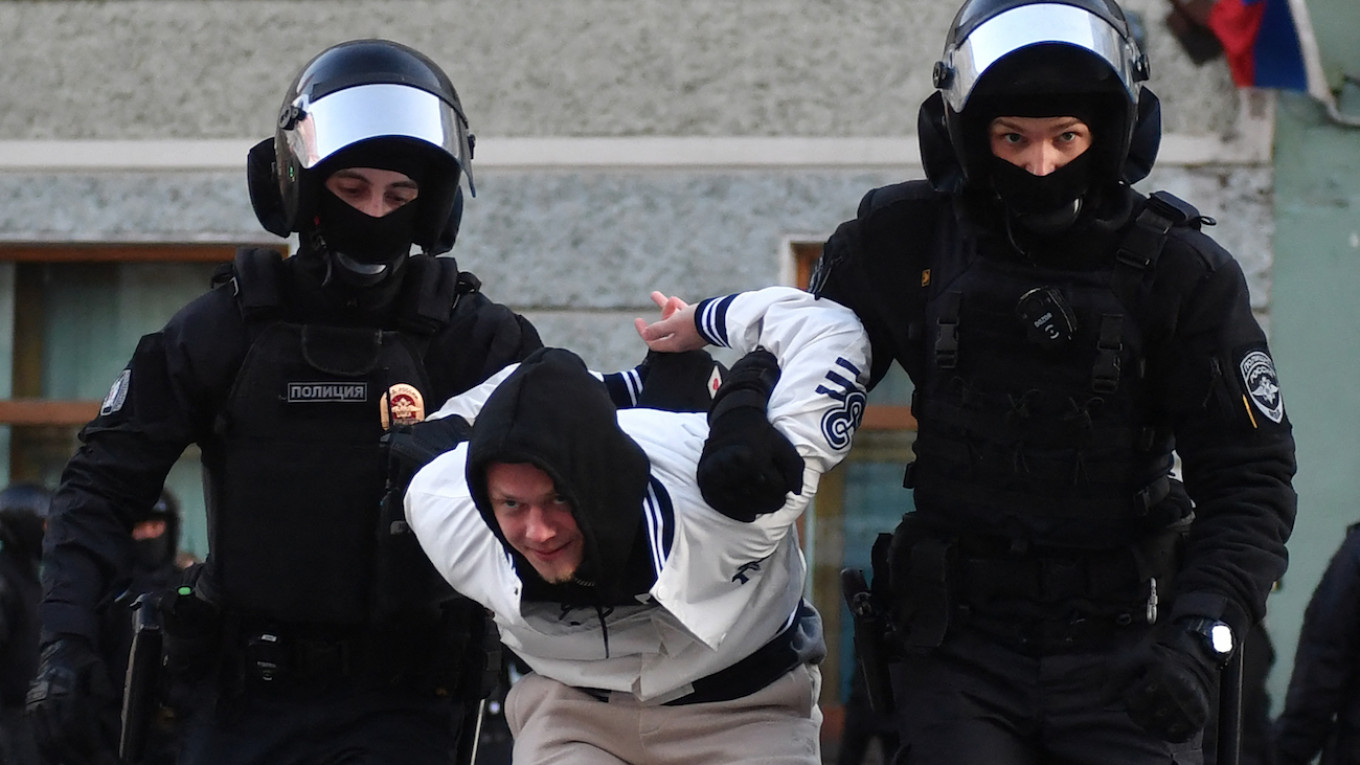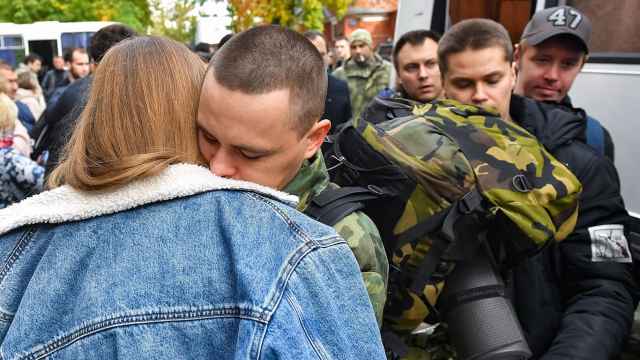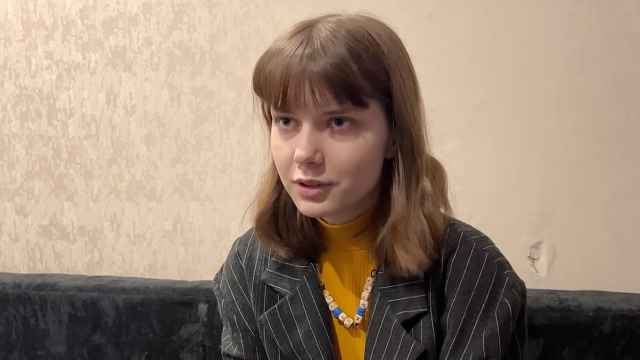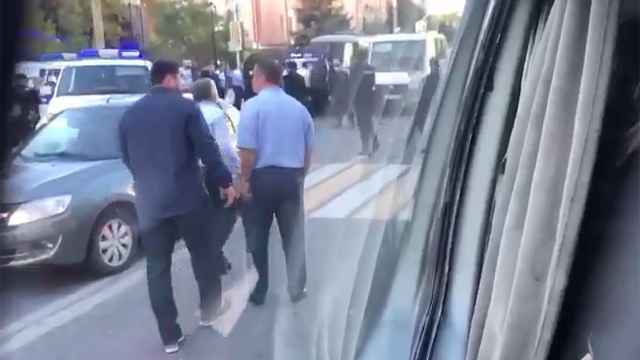Russian authorities on Saturday detained more than 700 people at protests against the partial mobilization ordered by President Vladimir Putin this week, according to an independent monitoring group.
Police monitoring group OVD-Info counted at least 726 people detained in 32 cities across Russia, nearly half of them in Moscow, at rallies following the partial mobilization designed to bolster Russia's operation in Ukraine.
There was a large police presence in the central areas of Chistye Prudy in Moscow, an AFP journalist witnessed.
Most protestors walked by or were standing still — individually or in small groups — to avoid being spotted and detained by the police.
AFP saw police detaining about 20 people.
"We are not cannon fodder!" a woman shouted, while police officers took her away.
In Russia's second biggest city of St. Petersburg, AFP saw a police van with about 30 detainees.
Protesters in St. Petersburg also tried to be discreet — police swept away anyone deemed suspect.
Ilya Frolov, 22, was holding a sign saying "peace."
"I want to voice my opposition to what is happening...I don't want to go to war for Putin," he said.
"I'm against the war, and against mobilization. I'm afraid for young people," said 70-year-old Natalya Dubova.
After Putin announced partial mobilization on Wednesday, Russian authorities detained over 1,300 people.
AFP spoke to some of them, who said police gave them call-up papers in custody — ordering them to enlist in the very army they were denouncing.
The Kremlin defended the procedure on Thursday, saying "it isn't against the law."
Russian authorities have cracked down on criticism of the military operation in Ukraine, arresting thousands of protesters since the beginning of the conflict in February.
At Saturday's protest in St. Petersburg, police officers said through megaphones that protesters were "infringing covid rules."
But on Friday, hundreds of people gathered without being stopped in Moscow and in St. Petersburg, in a show of support for the offensive and the annexation of Russia-controlled areas.
A Message from The Moscow Times:
Dear readers,
We are facing unprecedented challenges. Russia's Prosecutor General's Office has designated The Moscow Times as an "undesirable" organization, criminalizing our work and putting our staff at risk of prosecution. This follows our earlier unjust labeling as a "foreign agent."
These actions are direct attempts to silence independent journalism in Russia. The authorities claim our work "discredits the decisions of the Russian leadership." We see things differently: we strive to provide accurate, unbiased reporting on Russia.
We, the journalists of The Moscow Times, refuse to be silenced. But to continue our work, we need your help.
Your support, no matter how small, makes a world of difference. If you can, please support us monthly starting from just $2. It's quick to set up, and every contribution makes a significant impact.
By supporting The Moscow Times, you're defending open, independent journalism in the face of repression. Thank you for standing with us.
Remind me later.






